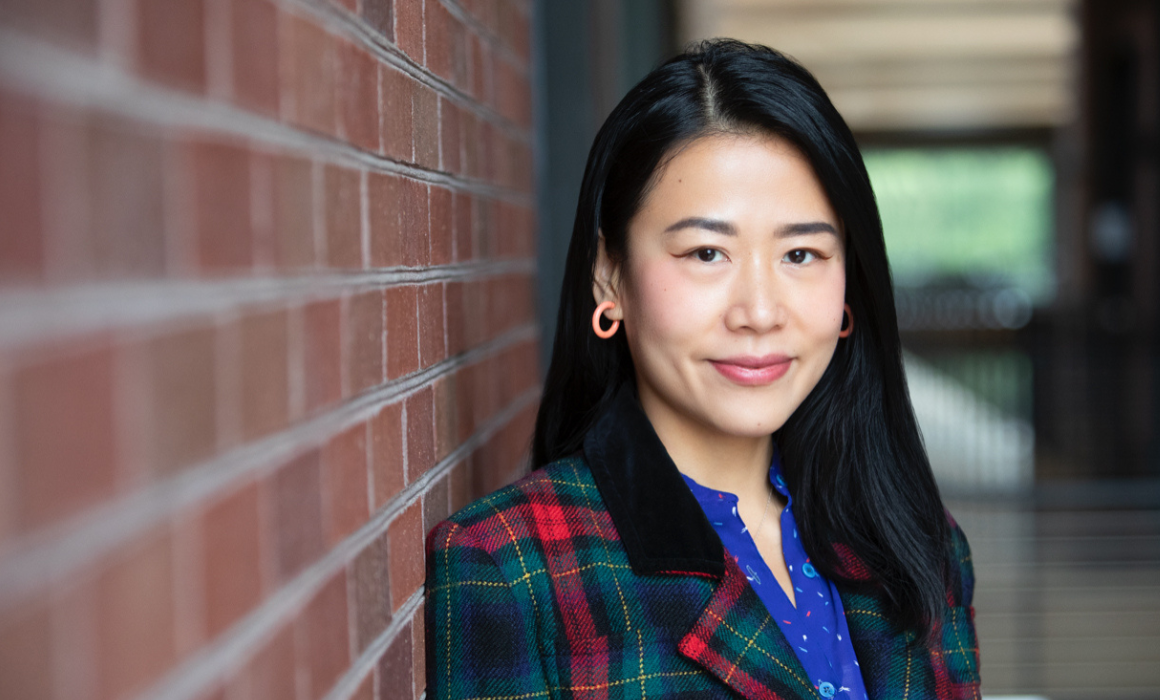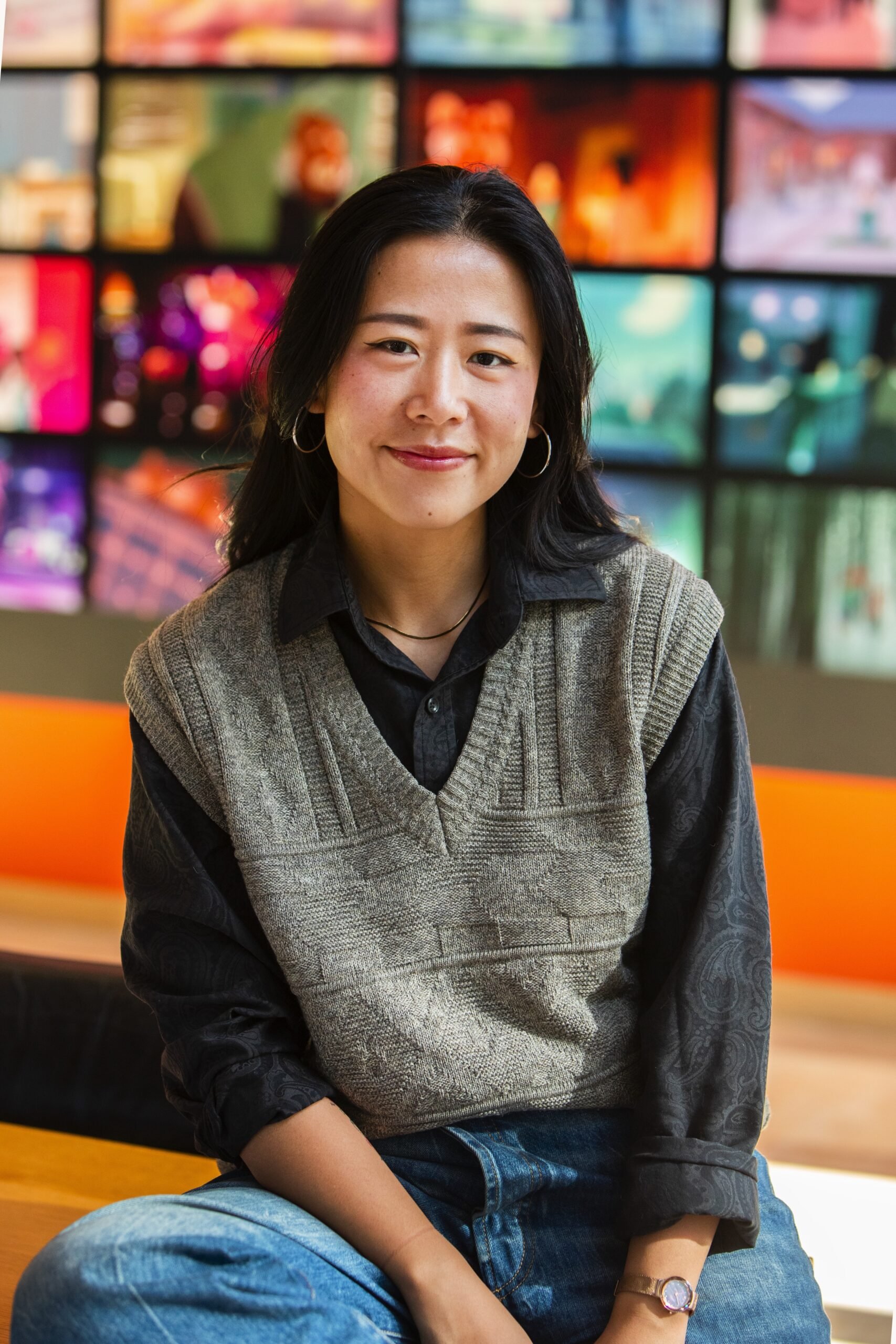How Domee Shi Learned to Fly Her Freak Flag
The director and animator talks about leaning into what makes you unique, finding a like-minded community and why you should always go for weird.
When Domee Shi was growing up in Toronto, she never felt out of place—at least, not because she was Asian.
For Shi, the director of the Oscar-winning short Bao and 2022’s Turning Red, her Asianness was just a fact of life, not necessarily something that she felt any angst towards. Growing up in a diverse city like Toronto, Shi says she took multiculturalism for granted.
“Living in immigrant communities and Asian communities, all my friends were immigrants or children of immigrants, so I never felt othered for being Asian,” she says. “I was othered for being a freaking nerd.”
As a young girl, Shi was obsessed with all things anime and animation. And while she wasn’t popular per se, she did have a posse of friends who were all nerds like her. This experience of growing up in a diverse world with a tight-knit group of friends inspired her work as an adult. As did her obsessions: The first VHS her parents bought her was Aladdin and Shi remembers loving it.
Speaking with RepresentASIAN Project, who caught up with the filmmaker at Toronto’s Higher Education Summit in November, she explained, “I just remember thinking, dang how could a drawing of a guy look so handsome? How is that possible? I just thought it was so cool that drawings can make you feel all these emotions, like so happy and sad and horny, all of these feelings from something created by someone’s hand. I thought it was so powerful and cool.”
Her father, an artist, further inspired Shi to draw at an early age. She quickly earned a reputation as her class’ artist. Soon, her classmates approached her for custom drawings of their pets, friends, crushes or favourite anime characters.
“I didn’t realize it at the time, but it was really important to me and helped me figure out who I wanted to be early on,” she says. That identity as an artist would become Shi’s defining trait. But it wasn’t just being good at art that drove her, it was other people and the community she was able to build that made her latch onto “artist” as her primary role. “I loved seeing people’s reactions when I’d show them a drawing. It was such a powerful, addictive feeling I wanted to keep chasing.”
She chased that feeling all the way to Sheridan College in Oakville, Ont., where she enrolled in its famous animation program. (It was actually her art community that introduced her to Sheridan: at Anime North one year, Shi met her favourite DeviantArt artists IRL and asked “how did you learn to draw like this?!” Their response: Sheridan.) At Sheridan, Shi learned the ins and outs of animation, everything from ideation to the process of creating an animated film to actually completing a short in her third year. There, she met other like-minded artists who continue to inspire her work and are still some of her closest friends today.
Director Domee Shi photographed at Pixar Animation Studios in Emeryville, Calif. Photo by Deborah Coleman / Pixar.
After her final year at Sheridan, Shi landed an internship at Pixar as a storyboard artist. At Pixar, interns get weekly assignments that they present in front of the studio’s directors, producers and artists. Shi, who hated public speaking, hoped that her drawings would speak for themselves. But eventually, when she received feedback saying that pitching was her weakest skill, she knew she had to work harder. Eventually, she impressed the studio enough to be offered a full-time job.
For Shi, it was drawing more on her personality, even the weird parts, that helped her stand out. Chasing that same feeling she got when she gave a classmate a funny picture, Shi began to lean into her eccentricities as a way to get emotional responses from her colleagues. Like the internship, being a full-time storyboard artist meant handing in regular assignments and presenting takes on particular sequences.
“While storyboarding Inside Out, I would do my assignment but I would pitch a little idea at the end,” she says. “It helped the creative leads see me as a person who was more than a draw-er and someone who also had ideas and could contribute to the story.” Often, she’d pitch a gag or a little joke—it was about going for odd, which often stuck to people’s imaginations much more than doing the scene straight.
Staying true to the nerdy little girl she was is what catapulted Shi from storyboard artist to director. As she worked on Inside Out alongside Pete Docter, the iconic Pixar filmmaker who directed classics like Monsters, Inc., Up and Inside Out, Shi developed the concept for Bao, her first short. She pitched Docter the full story—(spoiler alert!) mother eating the dumpling and all. He was delighted by the idea and encouraged her to pitch it to the execs. At the last moment, she scaled it back, pitching a tamer ending. When she finished, Docter called her out, asking her about the original ending. They invited her to pitch again, this time with her original, weirder ending. Bao went on to win the Academy Award for Best Animated Short.
The entire Bao experience taught Shi the power of sticking to her instincts, even if they’re weird. And her success with Bao gave her the chance to pitch a feature film. She knew she wanted to do a coming-of-age story with a Chinese girl, but when she landed on the idea for 2022’s Turning Red, she knew it was the perfect project.
“We’ve seen Teen Wolf, we’ve seen the Hulk, but like, we haven’t seen this experience from the eyes of a Chinese Canadian tween girl,” she says.
The final product was an explosive, heartfelt and genuinely laugh-out-loud funny movie about a Chinese Canadian tween hitting puberty and all the awkwardness that comes with it. The protagonist Mei, who turns into a giant red panda whenever she gets overwhelmed with emotion, was a symbol of all the big feelings everyone has at that age. It’s both a universal story about growing up and asserting your own identity against your friends and family’s, and a deeply specific one filled with nuances about growing up Chinese in Toronto. Shi took inspiration from her own life and upbringing, infusing Turning Red’s world with the tight girl squad she had growing up and the hilarious horniness of having your first (animated) crush.
“It was all stuff I wanted to see on screen and stuff I wanted other people to get into and be passionate about,” she explains. “Animation promotes empathy and understanding and if people can see characters that don’t look like them go through similar struggles, experiences and emotions, it’ll help them understand their fellow people in a better way.”
Up next, Shi is using her new role as a creative vice president at Pixar to mentor the next generation of animators and inspire them (and their audience) to fly their freak flag too. Her next project, Elio, hits theatres in 2025. Directed by Shi, Madeline Sharafian and Coco’s Adrian Molina, Elio is a coming-of-age film about a young boy who feels out of place on Earth and dreams of being abducted by aliens who he thinks will “get” him more.
“We all dream about finding our people and our place,” she says. “For me, it was joining Pixar or going to Sheridan. It’s like, you arrive at this place and everyone speaks your language and understands all your references. I wanted to capture that feeling.”


